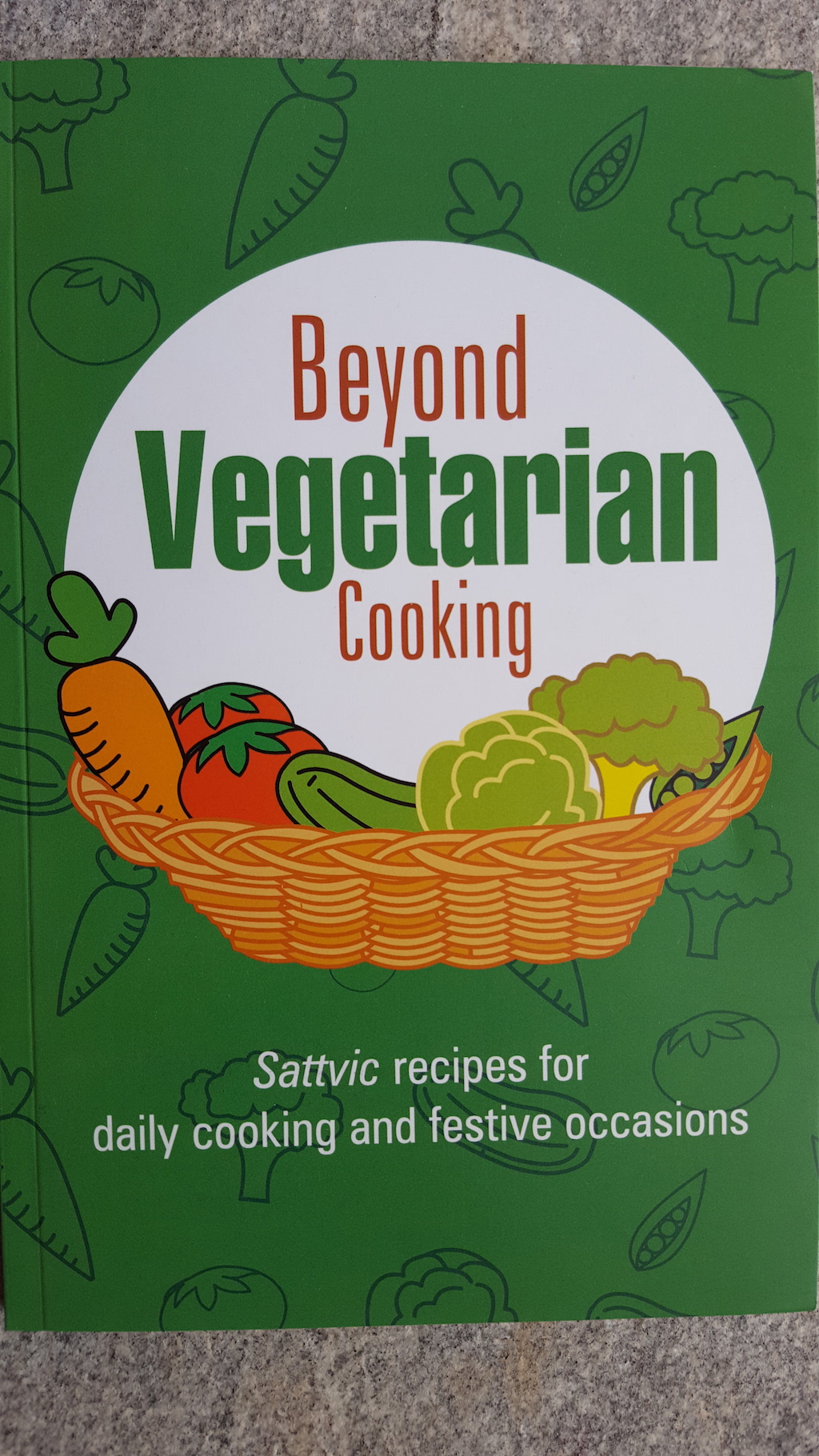
Title: Beyond Vegetarian Cooking
Authors: Vegetarian Food Cooking Experts
Publisher: Sankirtana Seva Trust, Hare Krishna Hill, Bangalore
Year: 2017 (5th print) Pg: 128 Rs.50/-
Why more and more people prefer vegetarian food? The reasons are many. Some of the reasons are: wanting to live longer, to live healthier, to do our bit to reduce pollution, to protect Mother Earth’s natural resources, to express compassion and love for animals.
Vitamin B-12 made by bacteria is the only vitamin inadequately supplied by a plant-based diet. Studies have found that vegetarians get larger amounts of fibre, iron, many vitamins and other cancer-fighting compounds than meat eaters. Vegetarians have reduced risks of chronic degenerative diseases such as obesity, coronary artery disease, high blood pressure, diabetes and cancer such as colon, breast, prostrate, lung and esophageal.
With societies across the globe becoming more health conscious these days, a meat-free diet has become the preferred diet. Even extreme versions of vegetarianism such as veganism and raw-food diets have begun to shed their stigma. The Vedas, India’s ancient sources of wisdom, however, have always recommended such a lifestyle for the best physical, mental, emotional and spiritual health.
It is a fact that we are what we eat. The Vedic scriptures divide food into three categories: Sattvic - foods in the mode of goodness, Rajasic - foods in the mode of passion and Tamasic - foods in the mode of ignorance without considering the ill-effects. The Bhagavad-gita states that “sattvic" food is the purest food, creating positive vibrations that promote happiness and satisfaction. This type of food, when offered to the Lord, is called “prasadam”. It is the perfection of all cooking, as it cleanses and revives the self and promotes spiritual progress. It satisfies the senses, captivates the mind and enriches the soul.
This book presents “sattivic” recipes to lead healthy and happy lives, in harmony with the laws of nature, in compassion with our fellow beings and with spiritually elevated consciousness.
At the end, 2 lists are given: 1) Names of various food ingredients in English, Kannada and Hindi. 2) Approximate Nutrient Values of Common Cooked Food including rice, idli, plain dosa, masala dosa, paratha, upma, bajji, samosa, potato bonda, masala vada, uddina vada, dahi vada, vegetable cutlet/ puff, laddu, halwa, chikki.
